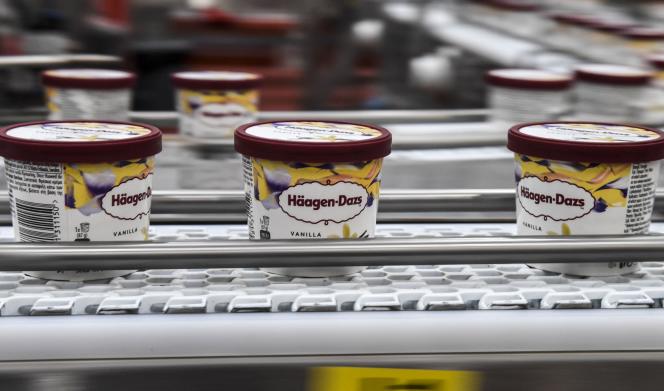The American group General Mills will voluntarily recall four batches of its vanilla ice creams that it markets in France under the Häagen-Dazs brand after detecting traces of ethylene oxide, a carcinogenic pesticide banned in Europe, a- he announced Wednesday, July 6.
“Following the detection of traces of ethylene oxide (ETO) in batches of certain Häagen-Dazs products, General Mills has decided to proceed with a voluntary and preventive recall of its Vanilla ice creams sold in France”, l one of its flagship perfumes, announced the agri-food giant in a press release. At the origin of this withdrawal, he mentions “traces of ETO [which] can be attributed to an ingredient [vanilla extract] supplied by one of our suppliers. The residual presence of ETO slightly exceeds the analytical detection thresholds,” he explains.
“In view of this information, the following products are subject to an immediate recall”: vanilla ice cream in 460ml and 650ml formats, in small 95ml tubs, and those sold in boxes of four in the range Vanilla Collection, with a minimum durability date of this Wednesday through May 21, 2023.
Many distributors involved
Many distributors are concerned: among them, Auchan, Carrefour, Casino, Cora Franprix, Intermarché, Leclerc or Monoprix, the list also includes the shops of the Häagen-Dazs ice cream parlor in France.
“People who have purchased any of these products are asked to throw it away and contact General Mills,” the group says. The consumer service will answer the questions of the users concerned at the following free toll number: 08-00-33-32-31. “Häagen-Dazs does not use ETO in its products, and the products comply with all food safety regulations and stringent standards in all markets where we operate,” says the company, which returns the responsibility to its supplier.
“No other Häagen-Dazs products are affected,” said General Mills, which apologizes to its customers and consumers for the “inconvenience caused by this recall.” A refund will be offered. Ethylene oxide contamination had led to the withdrawal of many products in Europe – including ice cream – between 2020 and 2021, contaminated with this active substance classified as carcinogenic and banned for food use in the European Union since 1991.

















